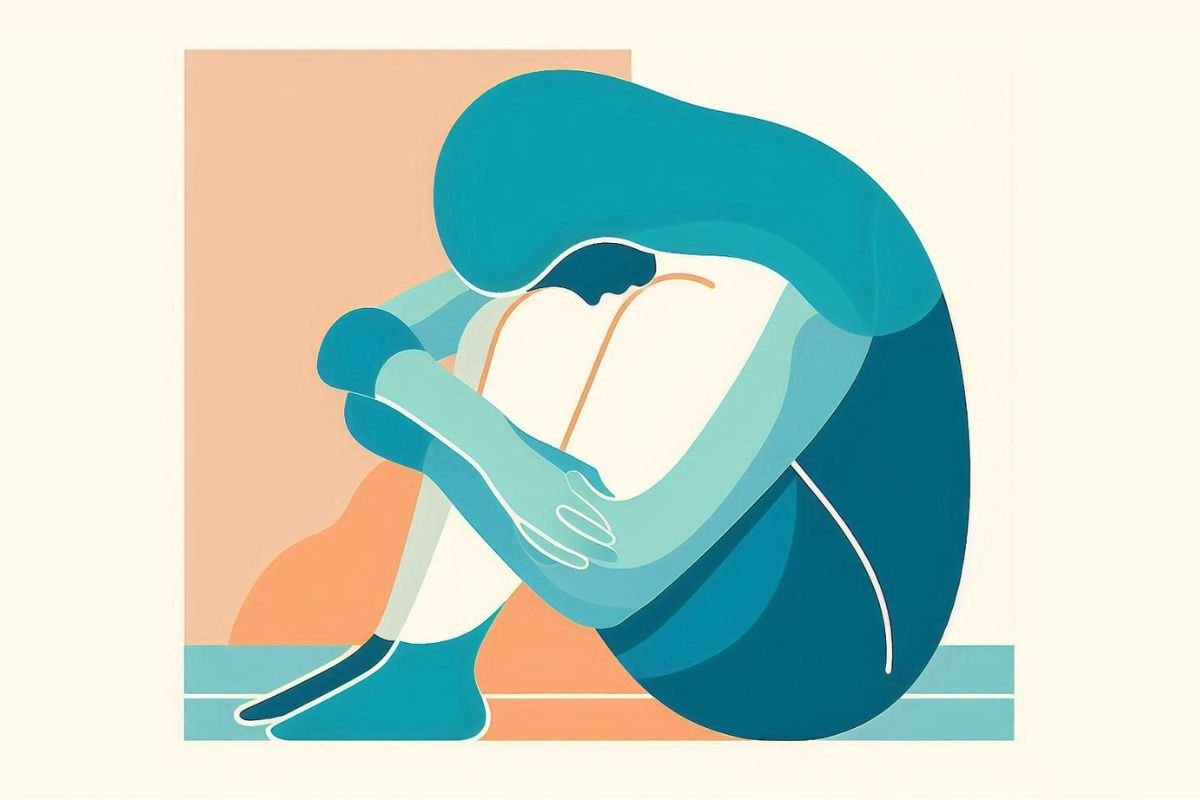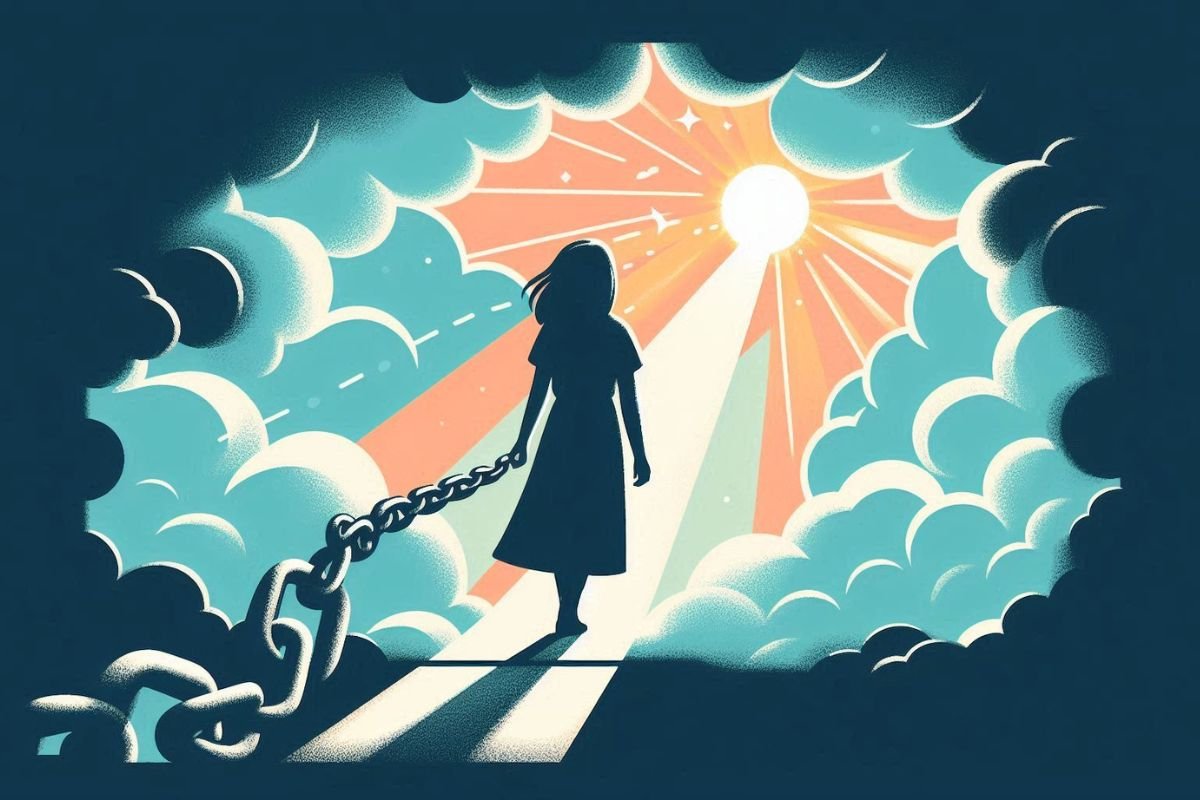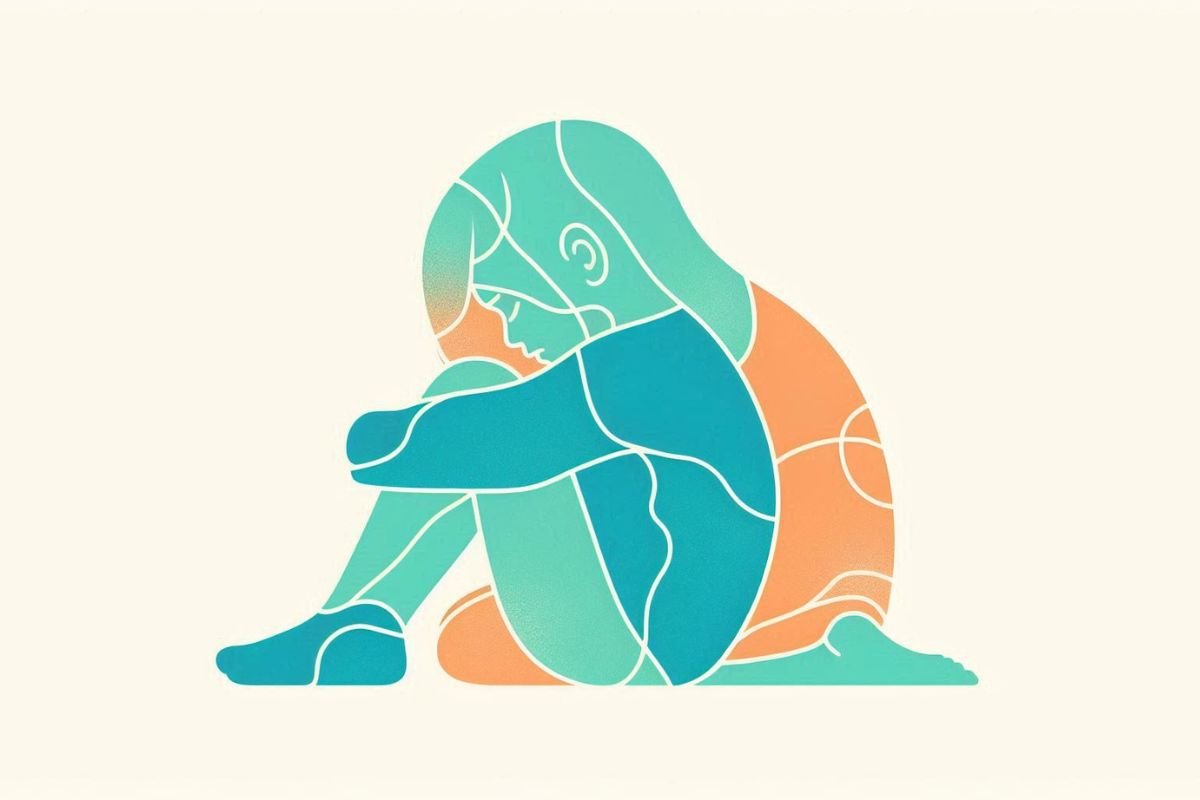The Truth About Family Curses: Why You Should Never Try to Rescue Your Parents

15 OCTOBER 2024
Have you ever wondered why life’s challenges seem to repeat themselves? Why the same struggles arise again and again?
You might wonder if it’s due to karma, fate, or something as trivial as your zodiac sign or even your phone number that is considered unlucky. But what if the answer lies somewhere deeper, like in your upbringing and family of origin?
How Parental Narratives Shape Our Mindset
Often, when parents complain to their children, they are unintentionally offloading their own pain, which can have serious consequences. Parents may express their frustrations with phrases like, ‘You have no idea how hard we work to make ends meet,’ subtly passing down a mindset of struggle and scarcity. This narrative becomes even more harmful when children are scolded for wanting things, with parents claiming they don’t deserve them or accusing them of being selfish, all while lamenting their own hardships. This unintentionally leads children to feeling guilty for their desires.
The Burden of Adult Conflicts
Parents may, in moments of frustration, express regret or disappointment, unknowingly pulling their children into issues beyond their control.
For instance, when parents criticise their spouse in front of their children, saying things like, “If it weren’t for you, I would’ve left your father/mother,” or “I must have been blind to marry someone like them”, they involve the child in adult conflicts. Realistically, can a child bear the weight of adult conflicts? Should they be expected to navigate the complexities of marital struggles or family discord?
The Burden of Unconsciously Carrying Parental Struggles
When parents vent their struggles to their children, the child may unconsciously develop a sense of responsibility. They start thinking, “My parents are suffering so much; I have to help them. I should carry this burden to make them happy.” On one hand, the child feels they must be strong enough to solve the family’s problems. In reality, they cannot. They are still a child. This creates a deep sense of guilt toward their parents that they carry into adulthood. This guilt may manifest as self-doubt, fear of failure, or difficulty setting boundaries as adults. Such a parent-child relationship is fundamentally inverted.
What is a Normal Parent-Child Relationship?
In a healthy parent-child relationship, parents shoulder the pressures of life and protect their vulnerable children, guiding them toward becoming independent adults. However, in an inverted relationship, the child steps into the role of caregiver, emotionally or even practically supporting their parents. Meanwhile, the parents, whether consciously or unconsciously, become dependent on the child. This phenomenon, known as role reversal, creates what we call “little adults”. Children forced to grow up too quickly and take on responsibilities far beyond their age.
In a balanced relationship, children are encouraged to explore their own identities, with parents providing emotional and financial stability. In contrast, ‘little adults’ may find themselves managing household chores, providing emotional support, or even making decisions usually reserved for adults.
Case Study – Even the Successful Are Not Immune

Consider the case of a highly accomplished woman in her 30s, working in the city. With an impressive education, a successful career at a FTSE 100 company, and striking personal qualities, she seemed to have it all. Yet, despite her achievements, she sought psychological help, not for career or self-worth issues, but for her struggles with relationships.
She had already been through three marriages, none of which had any major, irreparable issues. When asked during her therapy sessions why she ended these marriages, she simply responded, “I don’t know. Maybe it’s because I’m highly sensitive.”
The Concept of Highly Sensitive People
The concept of Highly Sensitive People (HSPs), first identified by psychologist Elaine Aron, describes individuals who deeply process sensory input and emotions. These individuals feel emotions more intensely and may become easily overwhelmed by stimuli such as loud noises or emotionally charged environments. HSPs tend to be highly empathetic, intuitive, and reflective, often spending considerable time analysing their emotions.
While heightened empathy can be a gift, it may also develop from early conditioning, particularly in children who grew up taking on parental responsibilities. As a result, HSPs are often more sensitive to criticism or conflict, which can affect them more deeply than others. For those raised in emotionally demanding environments, such as the woman in the case study, this heightened sensitivity can make relationships even more challenging.
Uncovering Childhood Roots
As the therapy sessions progressed, the psychologist uncovered a pivotal detail about the woman’s past. When asked about her childhood, she revealed that her parents had divorced when she was just three years old, and she never saw her father again. Left alone with her mother, she endured a highly strict upbringing, shaped by her mother’s emotional burdens.
Losing a parent at such a young age, combined with the weight of her mother’s emotional struggles, likely contributed to the woman’s deep sense of guilt, responsibility, and heightened emotional sensitivity.
Her mother, overwhelmed as a single parent, frequently expressed her pain and frustration, saying things like, “All the suffering I’ve endured is because of you. I’ve thought of ending my life many times, but because of you, I keep going. You are everything to me, my only pride, so you must not fail me. You must make something great of yourself”. These words left the daughter feeling responsible for her mother’s happiness while also carrying the guilt of being the supposed cause of her pain. This created an immense emotional weight on the daughter, who was both blamed for her mother’s hardships and pressured to succeed.
This kind of emotional dependency distorts the natural parent-child dynamic, leading the child to believe they must sacrifice their own needs to meet their parent’s emotional expectations.

Emotional Programming and Its Lasting Impact
Over time, the mother’s repeated words essentially instilled a deep sense of responsibility in her daughter, making her feel responsible for her mother’s suffering while simultaneously being pushed to live a successful and happy life. These mixed messages set the stage for emotional complexity and confusion.
Despite her professional success, the woman experienced three failed marriages. From a psychological standpoint, it is highly probable that the broken family environment and emotional manipulation contributed to her high sensitivity and struggles, which then impacted her relationships as an adult. While luck or incompatibility could be factors, the deeper root cause seems to lie in her family of origin and the emotional burdens she carried.
Observation One: A Subconscious Sense of Unworthiness
Subconsciously, she has internalised a belief that she is undeserving of happiness. This is often how conditional love shapes our sense of worth, teaching us that love must be earned through sacrifice rather than simply received.
She watches her mother’s constant hardship, a life marked by sadness, humiliation, and struggle. She is reminded daily that her mother endures all of this to raise her daughter “well.” As a result, any moment of happiness feels short-lived, quickly replaced by guilt, as though her joy exists at the expense of her mother’s pain.
In her mind, if her mother feels trapped in despair, how could she allow herself to feel joy, enjoy simple pleasures, or live freely? She develops a distorted sense of love and filial duty, believing that the only way to show devotion is to suffer alongside her mother. Any happiness quickly turns into guilt and a sense of betrayal.
Deep down, she carries the belief that if her mother sacrifices for her sake, she must also give up her own happiness to be a “good” daughter. This belief drives her behaviour, even though she remains unaware of its influence.
Observation Two: The Symbiotic Entanglement
Her relationship with her mother exhibits a form of emotional entanglement known in psychology as symbiotic entanglement. This occurs when two people become overly emotionally or psychologically intertwined, losing their sense of individuality. They rely excessively on each other for emotional support and validation, leading to blurred boundaries and stunted personal growth. Such dynamics are common in close relationships, like those between parents and children, romantic partners, or close friends, and can result in emotional dependency, an inability to manage emotions independently, and the reinforcement of unhealthy patterns within the family.
In her case, this entanglement not only fostered dependency but also stunted her ability to form healthy boundaries in her adult relationships, echoing the dynamics she experienced in childhood.
The Guilt of Pursuing Happiness
When asked about her relationship with her mother, she described it as being intensely close, with daily video calls where her mother shared every detail of her life, from what she ate to how she felt. She felt a deep sense of responsibility to stay updated on her mother’s emotional state, further solidifying their emotional entanglement.
This sense of obligation has locked her into a cycle of emotional caretaking, where her own well-being is secondary to her mother’s comfort. This dynamic perpetuates emotional exhaustion and prevents the daughter from developing her own identity outside of her mother’s influence, and the potential long-term effects of this dependency can lead to burnout or resentment.
The psychologist followed up by asking, “What happens if you don’t video call your mother?” She responded, “If I don’t update her on my daily life, she becomes extremely anxious, distressed, and insecure. My mother has endured so much in her life, so I feel responsible to make it up to her by pleasing her every day, doing whatever makes her feel comfortable. That’s why I need these daily video calls.”

Can you imagine what this woman was experiencing? Each time she tried to focus on her own happiness, whether in her marriage, love life, or desire to have children, she felt compelled to report everything to her mother, unable to fully enjoy these moments. Her mother, filled with negative energy and trapped in the pain of the past, was emotionally unable to share in her daughter’s happiness. Every time this woman felt a sense of joy, guilt would immediately creep in, and she would instinctively adjust herself to match her mother’s emotional state, pulling herself back into the same suffering.
With this ingrained pattern, how could she ever fully embrace happiness, joy, or freedom?
The Psychological Roots of Symbiotic Relationships
From a psychological perspective, these automatic thoughts and behaviours arise from subconscious programming. This brings us back to Observation Number Two, her mother’s daily need for emotional attachment, the constant communication, and the inability to separate emotionally from her daughter. This dynamic, known as a symbiotic relationship, often leads to heightened sensitivity.
Many mistakenly believe that symbiotic relationships are positive because they reflect closeness, but in reality, they can become suffocating and toxic. The individual’s personal needs are pushed aside, leading to a constant effort to keep the other person happy, often at the expense of their own well-being. This creates a dynamic where the individual feels they must suppress their desires and walk on eggshells to avoid conflict. Over time, this dynamic not only stifles personal growth but can also lead to chronic stress, anxiety, or even resentment.
The Fear of Living Without Boundaries
This dynamic is deeply unsettling because without boundaries or personal space, how can one truly live their own life? Every time she tried to move forward or build a good life for herself, her mother would reappear as a reminder, saying, “I’m about to fall, I’m so pitiful, I can’t do it anymore.” Just when she was on the verge of embracing a new life with a partner, she would push him away, saying, “Sorry, my mother needs me.” She would impulsively rush back to her mother, and the cycle of mutual struggle would continue.
Her longing for independence is constantly at war with her sense of duty to her mother, leaving her torn between two worlds, yet in the end, her mother’s needs always prevails.
The Subconscious Trap: Living in the Past
Her subconscious mind controlled the pattern, repeating the same scenario over and over. Each attempt to move forward would end where it began. But here’s the chilling part: when the psychologist asked how her mother was doing now, her response shocked him. She revealed that her mother had passed away three years ago.
Three years. Even after her mother’s death, the expectations and emotional conditioning her mother had instilled continued to govern her subconscious, impacting her decisions and keeping her trapped in the same emotional loop. Her mother’s presence, though no longer physical, still loomed large in her psyche, keeping her tethered to the past.
The Curse of Repeating Patterns
At this point, I want to highlight something important. These repeating patterns are not unique to one person, they happen to everyone. Think about it. Have you ever seen someone invest money, fail once, and then fail again? Or perhaps they got scammed once and, tragically, fell for another scam soon after. They keep walking into one trap after another.
The same happens in relationships. A person may leave a toxic partnership after being betrayed or mistreated, only to find themselves drawn into a similar dynamic again.
Doesn’t it seem strange that the same cycle repeats, beginning and ending at the same place? Why does this happen?
Here’s the answer. It lies in the imprint of your family of origin. Your upbringing shapes these patterns far more than you realise. They are deeply rooted in early experiences, formed through the unconscious lessons absorbed in your family environment.
When we understand how our three key relationships shape who we become, it becomes clear that what feels like fate is often a relational blueprint formed early in life.
Observation Number Three: Repetition Compulsion
In trying to escape her mother’s fate, she found herself trapped in the same cycle, what Sigmund Freud termed ‘Repetition Compulsion‘ or ‘Trauma Re-enactment‘.
These terms describe how individuals unconsciously repeat behaviours or situations that mirror past traumas, especially in relationships or life choices. This repetition arises from an unconscious drive to control or resolve the original trauma, though it often leads to further emotional harm.
For example, a child who was beaten by their father may grow up and repeat the cycle by beating their own children. Similarly, a child forced to eat more despite feeling full might impose the same behaviour on their own children. These are classic cases of Repetition Compulsion.
Though these behaviours seem illogical, they stem from deep-rooted psychological wounds that drive people to relive their past, hoping for a different outcome.
Breaking the ‘Curse of Your Family of Origin’

This case study vividly illustrates the concept of the Curse of Your Family of Origin. The first step in breaking free is recognising its existence. After reading this, have you noticed similar patterns around you? The same life stories repeating themselves in different areas of life? Have you ever found yourself trapped in a similar cycle, repeating patterns despite your best efforts to change? This phenomenon is what psychologist Eric Berne referred to as a Life Script, a subconscious pattern developed from early family experiences.
Children raised in such environments often display three key traits:
1. Fear of Happiness
Even as adults, they may avoid joy, happiness, or personal fulfilment. Despite achieving success in life, they feel undeserving of happiness due to their parents’ past hardships. The guilt of feeling like they are betraying their parents’ struggles overshadows any joy, leaving them emotionally blocked. They may even sabotage their own success, believing deep down that they are not worthy of happiness while their parents suffered.
2. Overwhelming Responsibility
These individuals develop the illusion that they must solve other people’s problems, even when it’s not their place. This leads to taking on unnecessary burdens and becoming emotionally exhausted. When they face setbacks, they quickly spiral into self-criticism and negative self-talk, thinking, “I’m so useless, I can’t do anything!”, which only reinforces feelings of inadequacy.
3. People-Pleasing and Emotional Conflict
When children take sides in parental conflicts, such as a divorce, they often feel emotionally torn, especially if they witness both parents suffering. For instance, a child may align with one parent’s anger, helping their mother criticise their father. However, if they also see their father struggling, they are burdened with guilt.
The child might then find themselves acting as a mediator in their parents’ arguments, absorbing the emotional tension in an attempt to keep the peace, but at the cost of their own emotional well-being.
This ongoing mental conflict can lead to the development of a people-pleasing personality, where the child grows up struggling to stand up for themselves or acknowledge their own needs.
After reflecting on these patterns, ask yourself: Is it truly your responsibility to save your parents? Should children ever be involved in adult conflicts?
Children often feel an obligation to fix family problems, not realising that these burdens aren’t theirs to carry.
Breaking Free from Unhealthy Family Dynamics
When parents are suffering, does that mean you are unfilial if you are not carrying their burdens? Does their pain mean you lose the right to live a fulfilling life?
Many people unconsciously feel an overwhelming responsibility to become their parents’ saviours. Often, this is less about love and more about easing their own guilt.
The moment you try to save your parents, emphasis on “try”, is the moment you step outside your rightful role. Real healing begins when we shift from rescuing others to taking responsibility for our own emotional growth.
By stepping into a parental position, you unintentionally cast your parents into the role of the “misguided child.” This reversal creates imbalance and increases strain within the family. It distorts the natural structure of the relationship and creates confusion about who is responsible for what.
The Limits of Responsibility: Understanding Emotional Boundaries
Your parents’ emotional struggles are not something you can shoulder for them. They have their own life experiences and burdens to bear. While it’s natural to feel compassion for them, the desire to rescue them, though well-intentioned, can actually stem from a subtle form of narcissism. Why? Because the reality is, you are powerless to save them.
Alfred Adler’s concept of separation of tasks in emphasises that every individual has their own set of challenges, responsibilities, and boundaries. It is crucial not to interfere with someone else’s personal tasks, even when it comes to your parents. Accepting that your parents have their own journey and challenges allows you to respect their autonomy, while safeguarding your own well-being.
Just as you cannot do someone else’s homework, you cannot solve their emotional struggles either. By stepping back, you allow both yourself and your parents to grow independently, fostering healthier relationships based on mutual respect rather than dependency.
The Path to Empowerment: A Parent’s Role in Breaking the Cycle
What parents should focus on is strengthening and stablising themselves. They must learn to manage their own emotional health through self-reflection, therapy, or supportive relationships, so they can model resilience rather than perpetuate dependency, or passing their emotional burdens onto their children, which only serves to spread the misery.
So, how do you break free from the Curse of Your Family of Origin? The first step is understanding and setting healthy boundaries. Recognising the roles and limitations within your family is essential to freeing yourself from toxic dynamics and reclaiming your right to a fulfilling, independent life.
Breaking the Cycle: The Path to Psychological Freedom

Breaking free from repetition compulsion and the patterns shaped by your upbringing is rarely achieved alone. It often requires deeper psychological healing and the support of professional therapy. However, this healing journey can begin with simple, manageable steps like journaling or making time for self-reflection.
Committing to this journey takes time, energy, and patience to unlearn unconscious behaviours and establish healthier patterns. However, in today’s fast-paced world, many people feel overwhelmed by the demands of work, studies, parenting, and family responsibilities. They often wonder, “Where can I find the time or energy to focus on breaking these cycles?”
The Power of Self-Awareness: Your First Step to Freedom
However, it’s important to recognise that, just by gaining self-awareness, you’ve already taken the first step toward breaking free from these psychological patterns. Self-awareness forms the foundation of personal growth, and self-observation is the key to lasting change.
Before now, you may not have been aware of concepts like Repetition Compulsion or the Curse of Your Family of Origin. You may have been living in a state of unawareness, repeating behaviours without understanding why. But now, things have begun to shift. You’ve gained clarity. You might even find yourself thinking, “Ah, so my struggles have been tied to these deep-rooted patterns.” In that moment of realisation, you’ve taken an important step toward freeing yourself from these cycles, and your growth has already begun.
With self-awareness, you can begin to catch yourself in these patterns and gradually choose healthier responses.
Embracing Growth and Letting Go

Finally, if you’ve found yourself in similar situations, it’s important to recognise that you’ve already worked tirelessly for years carrying responsibilities that were never yours to bear. Now is the time to let go of these burdens and return what belongs to your parents back to them. It’s time to reclaim your identity and embrace your true self.
Like flowers that bloom or trees that grow, allow yourself the freedom to flourish in your own unique way. Like a tree rooted in its own soil, you thrive when you nurture your own identity and well-being. Give yourself permission to live free from guilt and obligations that were never yours to carry.
If this message has resonated with you, consider sharing it with friends and family who may also be struggling under the weight of similar burdens. By spreading awareness, you not only deepen your own healing but also offer a path of hope and transformation to those around you.



